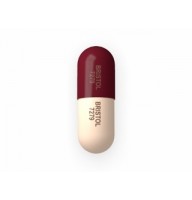Taking Trimox (Amoxicillin) should always be done according to your healthcare provider's instructions. Typically, Amoxicillin is taken orally in the form of capsules, tablets, or liquid suspension. It's important to follow the prescribed dosage and schedule exactly as directed. This ensures that the medication is effective in treating the bacterial infection and reduces the risk of developing antibiotic resistance.
For most infections, Trimox is usually taken two to three times daily, with or without food. It's important to take each dose at evenly spaced intervals to maintain a consistent level of the medication in your body. If you are prescribed the liquid suspension form of Amoxicillin, use a measuring spoon or device provided by your pharmacist to ensure accurate dosing, as household spoons may not provide the correct measurement.
It's crucial to complete the entire course of treatment, even if you start feeling better before finishing the medication. Stopping treatment prematurely can allow bacteria to survive and potentially become resistant to future antibiotic treatment. Conversely, taking more than the prescribed amount can increase the risk of side effects without improving the effectiveness of the treatment.
If you miss a dose of Trimox, take it as soon as you remember, unless it is almost time for your next scheduled dose. In that case, skip the missed dose and continue with your regular dosing schedule. Do not double up on doses to make up for a missed one.
Throughout your treatment with Trimox, monitor for any side effects or unusual symptoms and report them to your healthcare provider. Common side effects may include gastrointestinal discomfort such as nausea, vomiting, or diarrhea. Serious side effects such as severe allergic reactions are rare but require immediate medical attention if they occur.
By adhering to your healthcare provider's instructions on how to take Trimox (Amoxicillin), you ensure the medication's effectiveness in treating your bacterial infection while minimizing potential risks and complications associated with antibiotic therapy.

